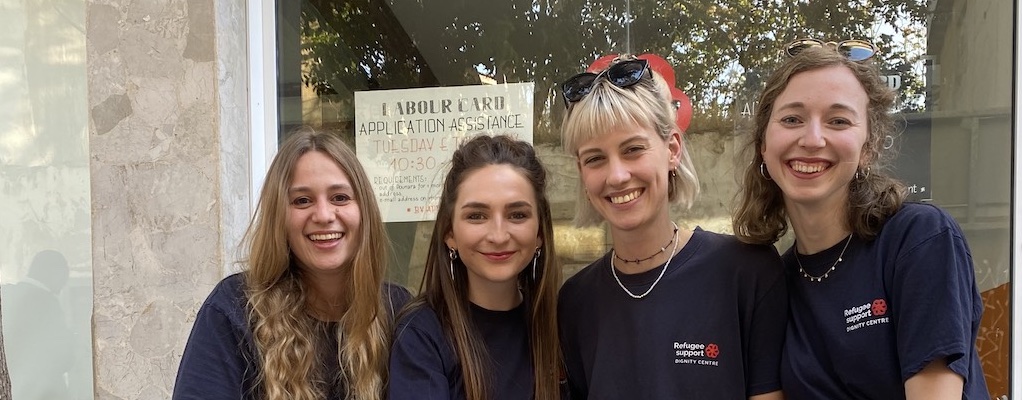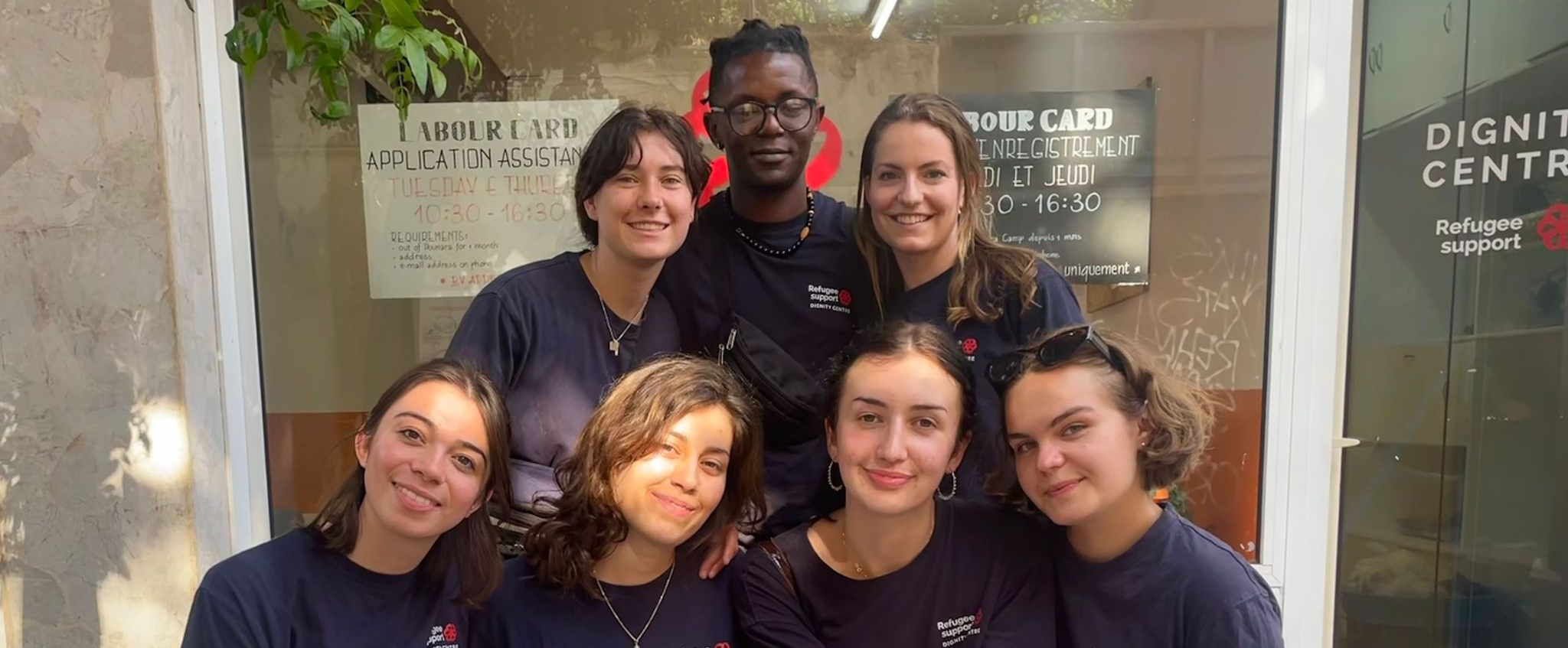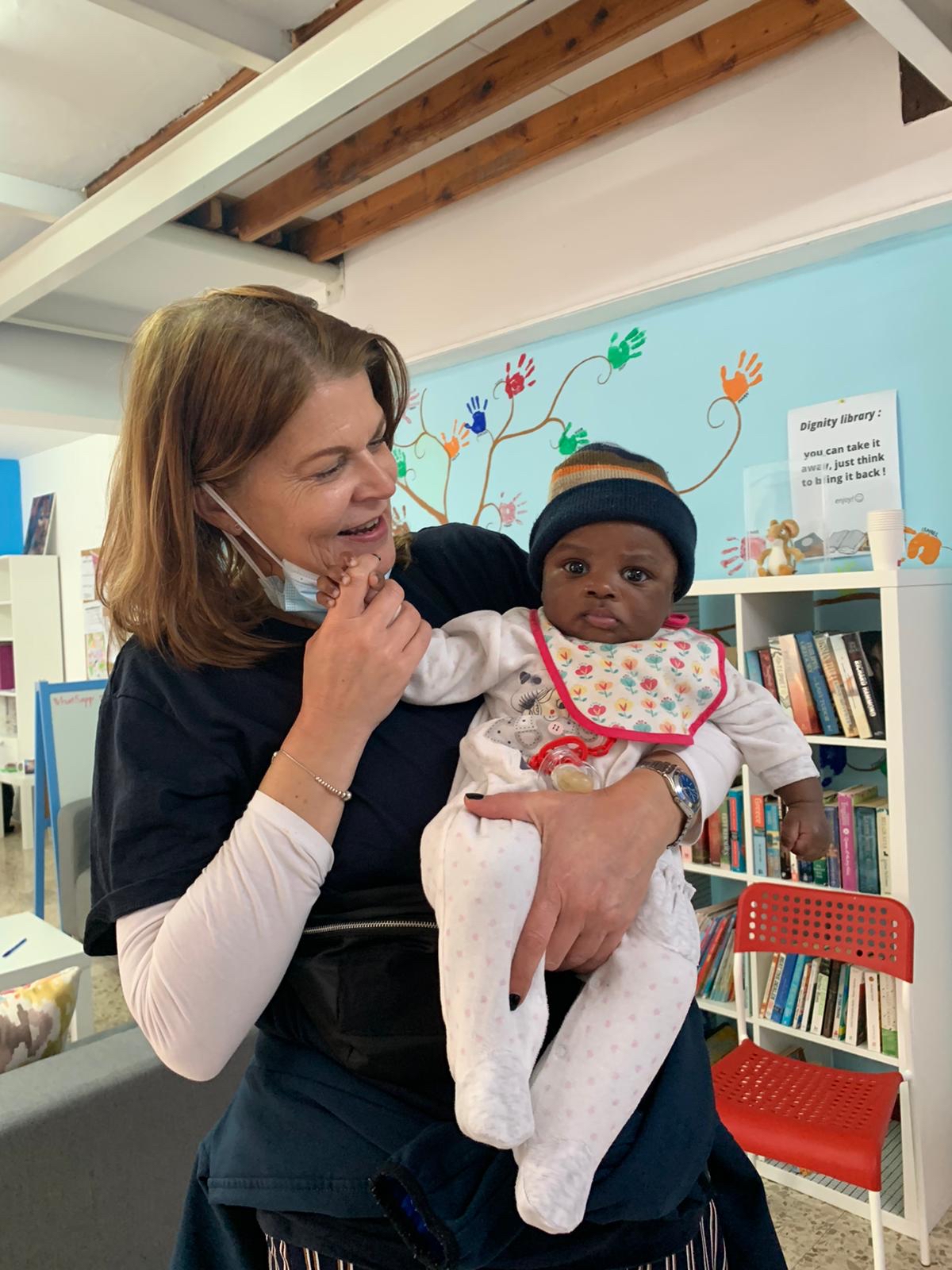I can’t tell anyone exactly why we decided to spend Christmas and New Year on camp Alexandria. Other than the horrific news articles we had read and watched, I suppose there were some selfish motives: not least getting away for Christmas without upsetting family by “holidaying” (only kidding mum). Also there was the opportunity to give some time and effort back after what had been a successful year personally. However, as I say, in a similar fashion to a lot of the volunteers that became our friends, I couldn’t put my finger on exactly why I ended up spending Christmas in Alexandria other than it felt like a good thing to be doing.
I have visited Alexandria on two occasions: for two weeks over Christmas & New Year and more recently, in early March. On both occasions, Paul asked if I could write a brief volunteer story. I agreed. Then when I came to write it, I put it off as I didn’t have time. I pride myself on doing what I say I will, when I say I will. In all honesty, this “lack of time” was an easy excuse I used to cover up the reality which was/is that discussing anything remotely emotional is well outside my comfort zone; particularly if this is to be posted on the worldwide web for all to read.
However, for two reasons, I have now decided to jot down my experiences:
1. I have just finished reading a good book on growth mind-set and cognitive dissonance which has helped kick me in to action…
2. More importantly, I strongly support what Refugee Support is doing, and if me stepping outside my comfort zone in any way helps Paul, John and the team to raise awareness and money or encourage volunteers then surely it’s a price worth paying.
Anyway, what happened? What do I hope I gave? And what did I take from my time on camp?
From the first minute, I loved my time on camp: I felt I could quickly make a difference- stuff needed doing; crack on and do it without any of the bureaucracy we deal with in “normal” life. I also quickly got an understanding of what Refugee Support was trying to deliver. This quick settling-in process was emphasised when a new volunteer turned up shortly before lunch straight from the airport. She came into the boutique, introduced herself as Shreya (like a lot of the volunteers she later became a friend) and asked what to do. I gave her a quick show round camp, briefed her on the workings of the boutique and we cracked on with restocking before lunch. Later she asked how long I had been on camp: I replied “since 10am this morning”.
Day to day duties varied from working in the shop, running the boutique, playing with children, ordering stock, lumping and humping in the warehouse, buying 1000 eggs from the cash & carry, buying spices from the market, buying 300 packs of laughing cow from Lidl, driving volunteers about, playing a bit of football and generally going whatever I could to help with the day-day running of the camp. However due to my timing, I got really involved with the kitchen (we served our first meal on Christmas Day) and found my work in there incredibly rewarding: the meals we were offering were such a huge improvement from the army supplies residents were used to and the fact the kitchen was run by a combination of residents and volunteers provided residents with dignity that they were no longer receiving handouts but helping feed themselves and each other. The kitchen was a huge success and in the short time I was there, could see the difference it made to the camp was huge.
After a few days I had a very small crisis and questioned what I was doing… John had given a brief insight in our morning meeting in to the plight of the refugees: the scale of the problem dawned on me… The difference me sorting in the warehouse or cooking in the kitchen made was almost insignificant when you consider the bigger picture: what was the point? I continued to put as much in to my role while fighting these thoughts in the back of mind until day 8 (I kept a diary!). By this point I had taken on the role of coordinator so had planned my daily rota for the volunteers and delivered this in our morning meeting. However, John then added to my meeting with “it’s really sunny today, can we all play with the kids this afternoon?”. If I’m honest, this annoyed me at first- I’m a self-professed control freak and had spent a few minutes the night before organising who was restocking the boutique, who was sorting kids clothes in the warehouse, who was cleaning the shoe shop etc. and John goes and changes best laid plans. However, as I was driving the van over to the warehouse for the morning shift, I had my eureka moment… I may be totally wrong here as I never discussed this with John but it dawned on me that John and Paul have come to terms with the fact they cannot make global changes to humanitarian aid. However if they can make today better for the men, women and children on their camps (i.e.; “it’s sunny today, let’s play with the children”), then they have achieved something incredible. Whether this is their thought process, I am still unsure but it became mine- if each hour I’m on camp, I can make a kid smile, provide a proud dad with dignity or make a single mum’s day easier then I have achieved far more than I can, sat at my office desk.
The rest of my two weeks and my return visit, I hope and feel I have delivered this. Thanks to the incredible work of RSG and its countless volunteers, Alexandria camp isn’t the horrific place that may come to mind when imagining a refugee camp: the residents eat well thanks to the fantastic kitchen, they are well dressed thanks to the boutique, they shop with dignity thanks to the ingenious points system in operation in the shop. Whilst conditions can always improve (indeed RSG are making these improvements as we speak), day to day, basic needs are delivered.
However as you naturally get to know a selection of residents, their plight and situation becomes more clear:
- A dad whose dream is to see his 10 year old son in Germany.
- An incredible young man who has lost both his brothers. To the war.
- Another young man who dreams about seeing his family again.
- A woman who cites the hardest part of being a refugee as the physical challenge of walking hundreds of miles through snow with all her belongings, her 4 children but without her husband.
These are just a few of the stories that show the position millions of people are in. These are normal, professional people: students, teachers, accountants, chefs who have lost virtually all control over their lives. RSG gives them an element of control and dignity wherever they can and makes each day they spend on their camps infinitely better than were they not present.
Since returning home this time (I found my second visit more emotionally challenging) I have thought about the mantra of making each kid smile and focusing on the little things we can effect rather than the desperate bigger picture we apparently can’t… One day these people will not be refugees: they will hopefully be able to return home or be granted asylum. The work RSG is doing will mean children will be healthy and educated, parents will have self-respect and dignity. In short, these people will have a chance of rebuilding lives – a much higher chance than if RSG and all us volunteers hadn’t decided to do what we do. Suddenly, making kids smile, sorting clothes in the warehouse and cooking in the kitchen doesn’t seem so insignificant…
I wrote to Paul when I returned at Christmas with a brief handover but mentioning a certain level of guilt as I felt I had taken more from the experience than I had given. Whilst the time I gave up and will continue to give up is meant as a very altruistic gesture, there are countless by-products I have gained, a few being: escapism (I didn’t think about anything other than camp life!), a level of perspective (perceived problems become insignificant) and meeting great people (volunteers and residents).
I will continue to support RSG however possible. John and Paul know the offer of a short term coordinator is always there. Like everyone, my time is precious which means I am selective on how I use it. I simply cannot think of a more effective, rewarding and decent way of spending it.



